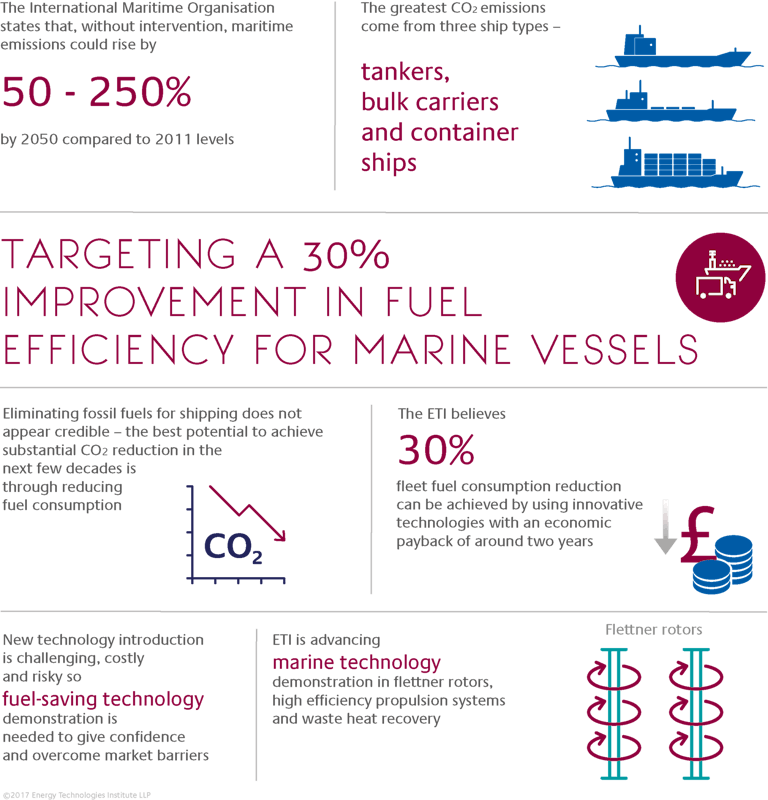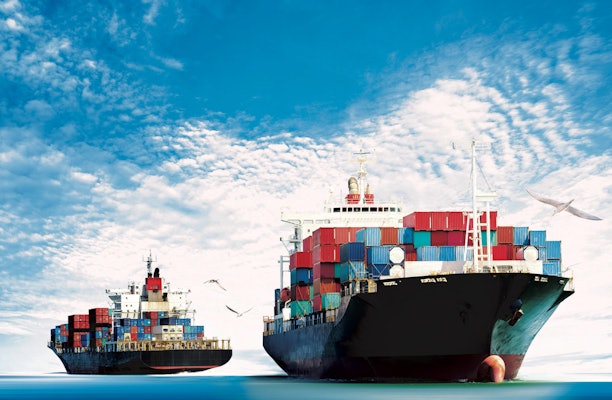Targeting a 30% improvement in fuel efficiency for marine vessels

Stuart Bradley
Strategy Manager
A 30% fleet fuel consumption reduction can be achieved
The International Maritime Organisation (IMO) third greenhouse gas emission study in 2014 stated “Marine transport emitted 938 million tonnes of CO2 in 2012, representing 3.1% of the world’s total emissions”, and that “The total fuel consumption of shipping is dominated by three ship types: oil tankers, container ships and bulk carriers”. Consistently for all ship types, the “main engines are the dominant fuel consumers”, and in the IMO assessment of future scenarios, they state that, without intervention, maritime emissions could rise by 50–250% by 2050 compared to 2011.
From 2007 to 2012, international shipping emissions were in relative decline compared to global emissions due to a change in economic activity and the subsequent increasing popularity of “slowsteaming”. The IMO introduced the Energy Efficiency Design Index (EEDI) in 2011. The EEDI sets specific ship-class fuel efficiency targets, and aims toprogressively tighten them. The EEDI encourages continued technical progress in the reduction of vessel fuel consumption. The initial CO2 reduction target level is -10% from the 2011 datum and will be tightened every five years to keep pace with fuel consumption and emissions reduction technology developments.
These targets are mandatory for all ships. The intention of EEDI is admirable; however, relying on technical progress to drive commercial deployment and acceptance is unlikely to accelerate CO2 emissions reductions to meet the IMO or UK government targets. Additional initiatives are needed, and the intention of this programme is to provide the technology, tools and commercial advantages to ship owners, operators and charterers to accelerate compliance with emissions targets.

Stuart Bradley
Strategy Manager
Stuart Bradley joined the ETI in October 2013 as Strategy Manager, Offshore Renewables. He is a Marine Engineer, and has a PhD in Mechanical Engineering.
